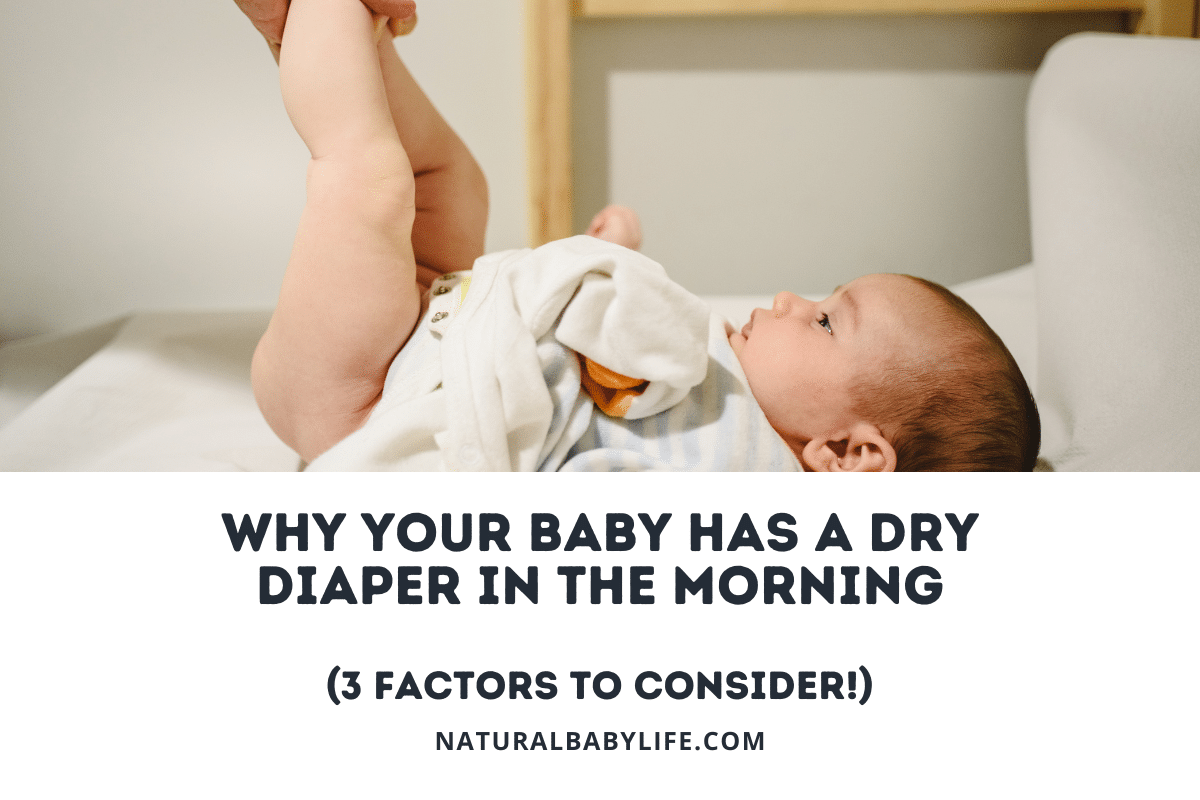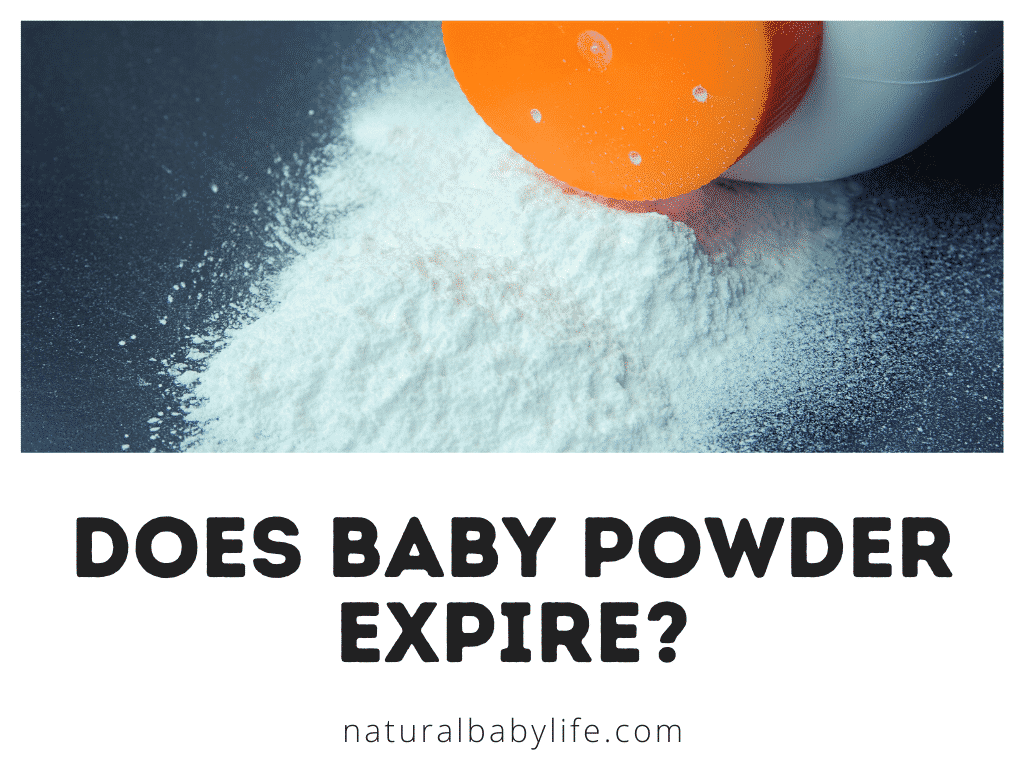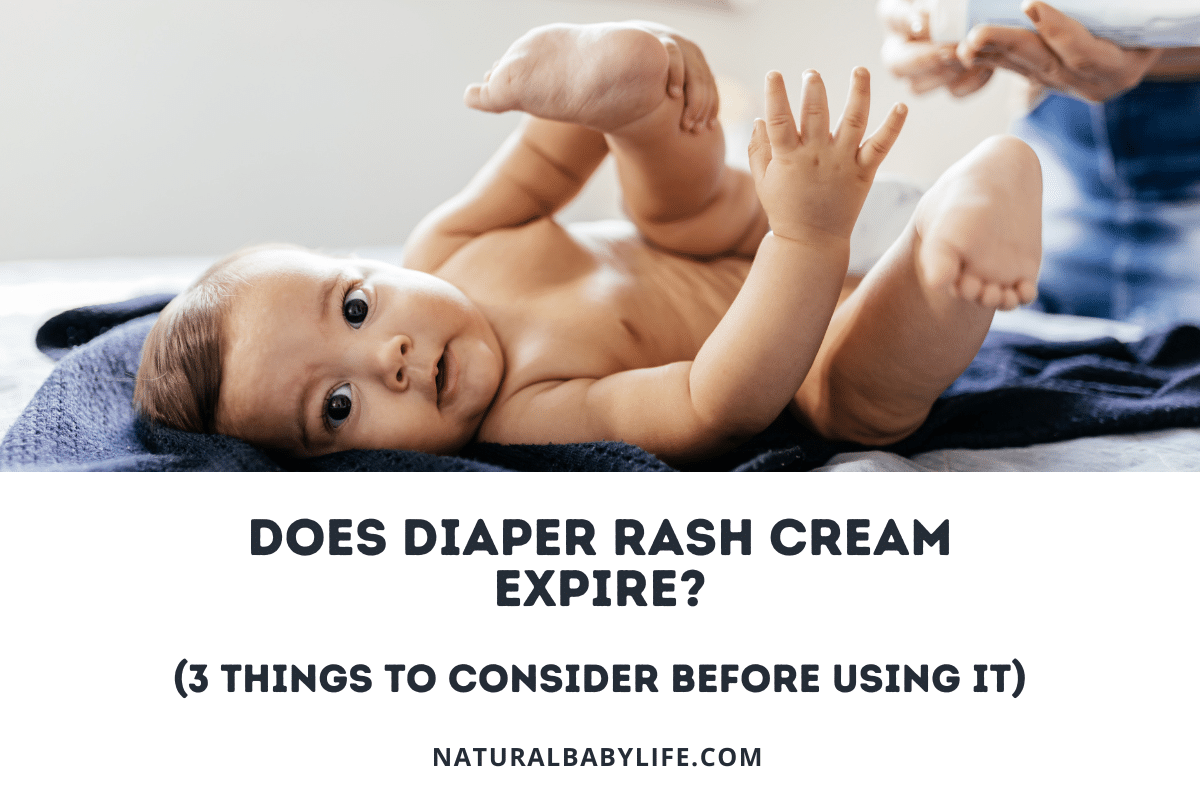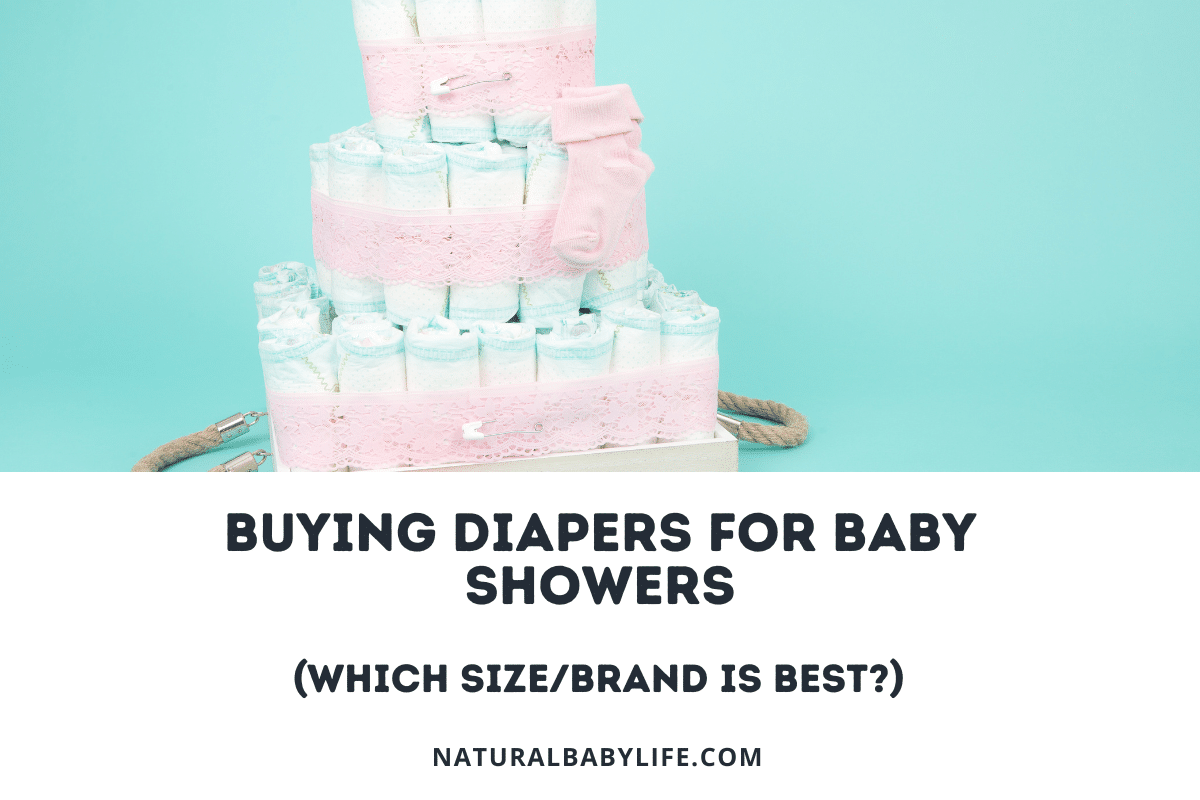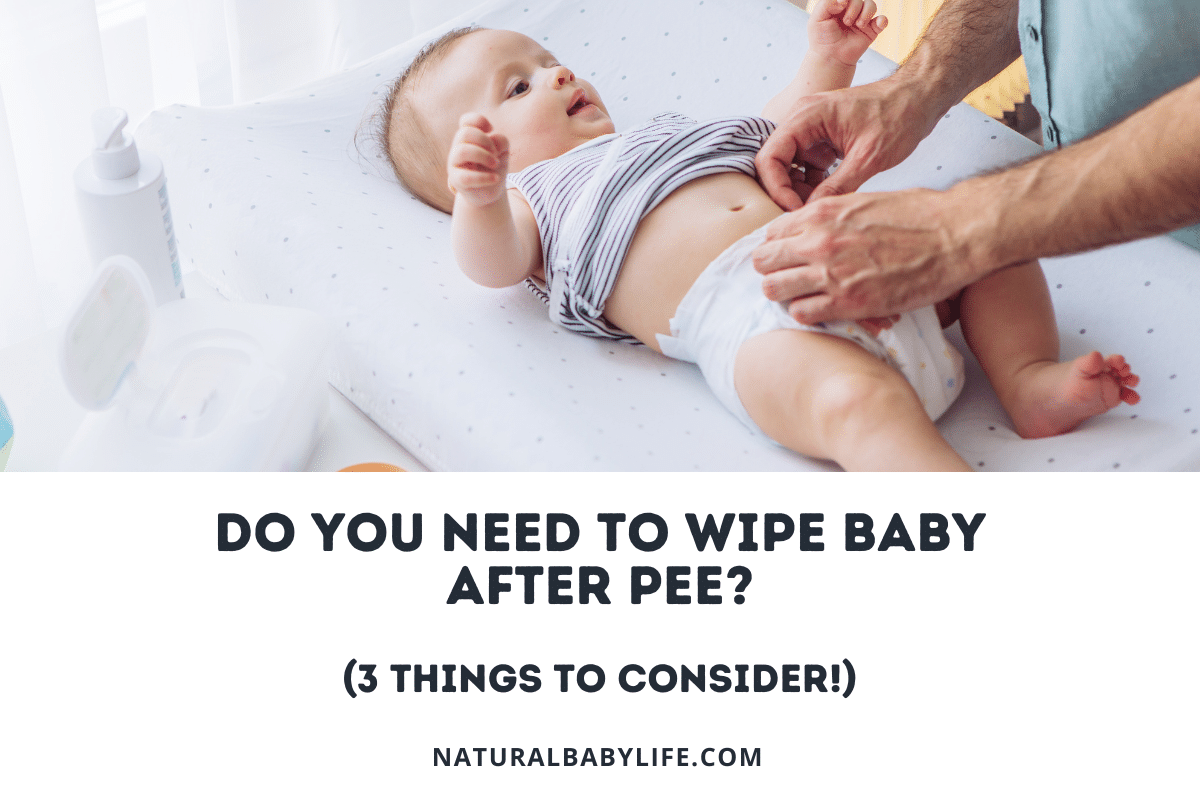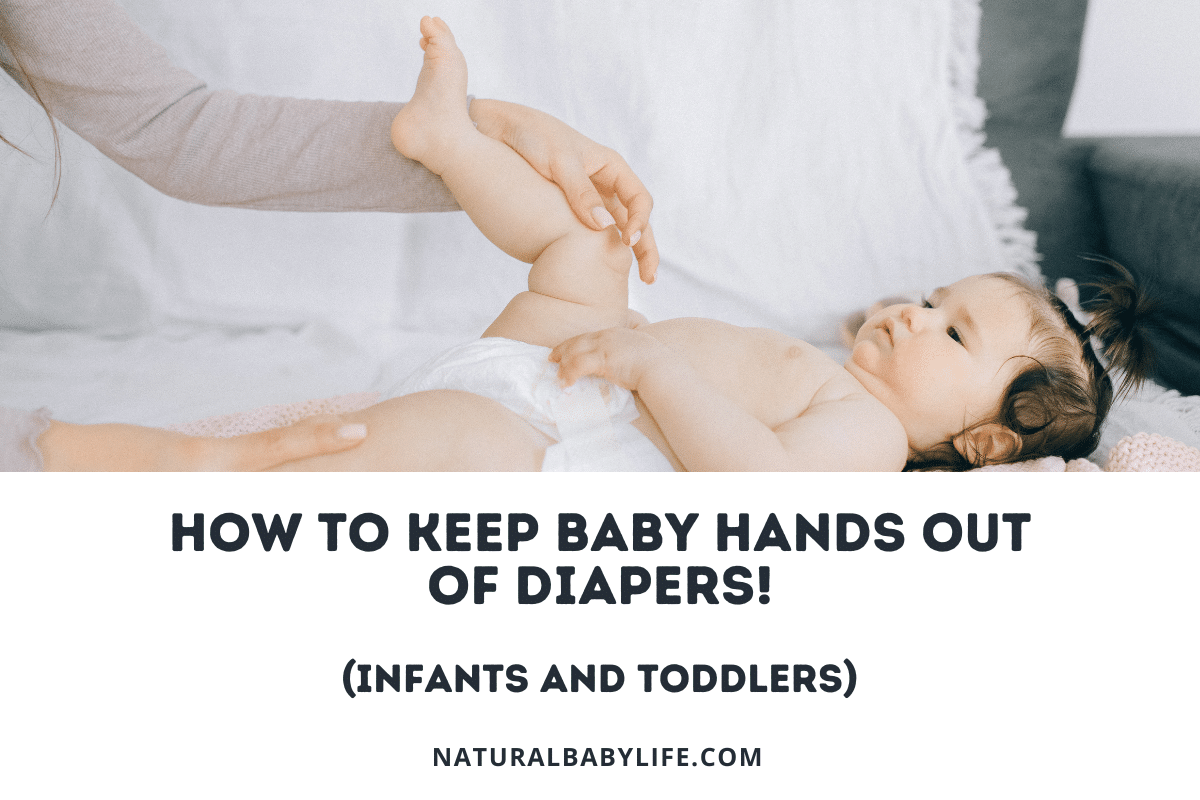It’s common for new parents to worry constantly about their baby’s health. When my twin girls were little, we had a schedule written down of their diaper changes so that we wouldn’t lose track. We started noticing they sometimes had a dry diaper in the morning, but we didn’t know if it was a problem. If you’ve ever realized your baby’s diaper is dry in the morning, you may have wondered if your baby was dehydrated.
A dry diaper in the morning could be a sign of mild dehydration, but there are many other possible causes. The age of your baby, their ability to sleep through the night, whether or not you breastfeed at night, and potty training can all be contributing factors that aren’t a cause for concern.
During the early months, your baby is rapidly growing so you shouldn’t be surprised if your little one throws you a curveball now and then. Just when you think you have a routine figured out – things will change! Let’s see when we need to worry about dry diapers and when it’s completely normal.
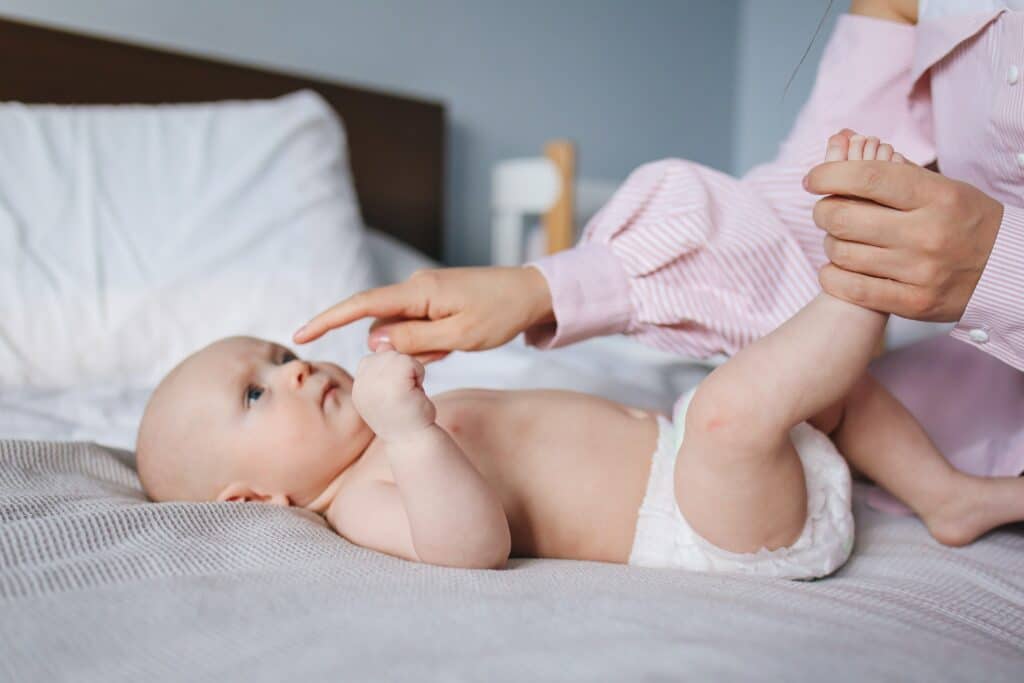
Table of Contents
Why does my baby have a dry diaper in the morning?
From the time your baby is born, you’re told to monitor how many wet diapers they have throughout the day. Checking the number of wet diapers is an easy way to ensure your baby is staying hydrated. Since we know wet diapers are a good sign, especially in those newborn days, it’s not surprising that a new parent may be concerned if their baby wakes up completely dry. This may leave any parent wondering: is it normal for my baby to wake up with a dry diaper?
In most cases, a dry diaper in the morning isn’t a cause for concern. There are several factors that may contribute to whether or not your baby has a wet diaper in the morning, including their:
- Age and stage of development
- Feeding habits
- Sleeping habits
Before you panic, it’s important to consider these factors and how they might affect the number of wet diapers your baby has. If your baby has started sleeping through the night, for example, they may not be wet in the morning since they’re not taking a bottle or nursing as often. Let’s look at each of the factors and how you can determine whether your baby’s dry diaper is a cause for concern.
A baby’s age can greatly affect the number of wet diapers
The first few days after birth are the days you worry the most as a parent. Everything is new and there’s always something to obsess over whether it’s feeding, changing, sleeping, or clothing.
As a simple rule of thumb, however many days old your baby is- that’s how many wet diapers they should have in a day for the first 7 days of life. Something else to keep in mind is that newborns don’t always produce a lot of urine when they pee and it can sometimes be hard to determine whether or not your baby actually wet their diaper overnight. The easiest way to check is to use a diaper that has a wetness indicator built-in so that you’ll be able to tell more easily.
My favorite diaper with a wetness indicator is currently the Huggies Special Delivery. You can check out my in-depth review on this diaper here or check out what other parents have to say about it and purchase it here. It honestly feels like a cloud!
The number of wet diapers your baby will produce will also change as they grow, leveling off after the first month or so. Here’s a quick rundown for how many diapers you should expect to see throughout the day:
- 0 to 1-month-old – 10 to 12 diapers per day
- 1 to 5-month-old – 8 to 10 diapers per day
- 5 to 9-month-old – 6 to 8 diapers per day
- 9 to 12-month-old – 6-8 diapers per day
As long as your baby is filling up enough wet diapers within a 24-hour period, then there likely isn’t any reason for concern if their diaper is dry in the morning. It doesn’t matter if they are mostly happening early in the day, later in the day, or at night as long as they are staying hydrated.
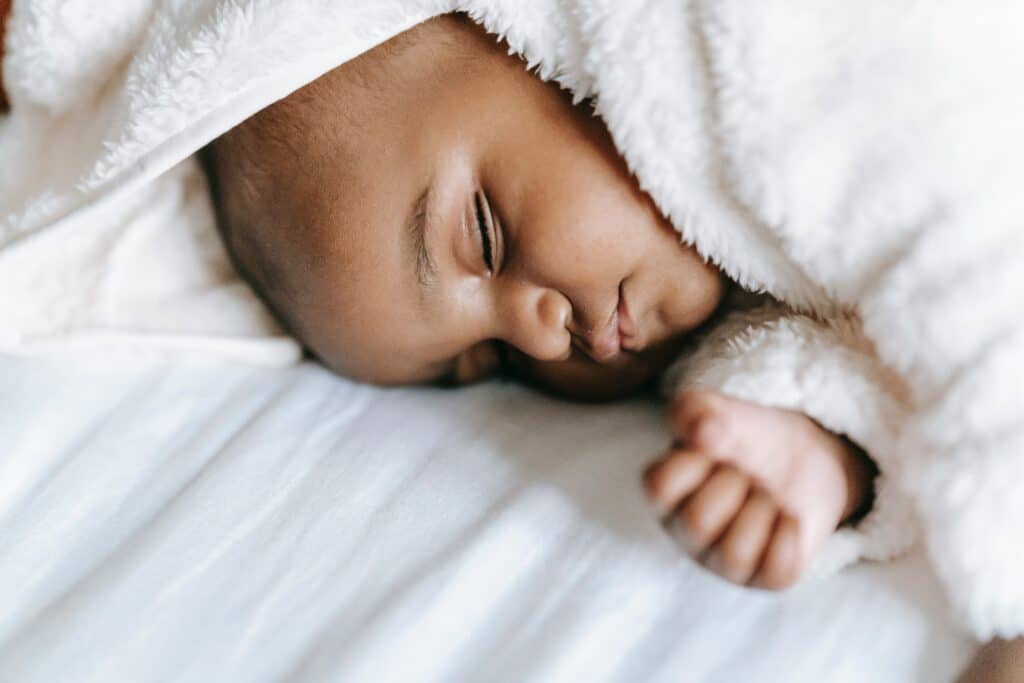
Is your baby sleeping through the night?
Around the age of 3 to 6 months, your baby should start ‘sleeping through the night.’ Sleeping through the night typically means sleeping six hours in a row.
As your baby’s sleeping schedule changes, so will their feeding schedule. Feeding less at night, especially during the middle of the night, will cut down on the volume of fluids coming in during those hours and it is not uncommon to start noticing a few dry diapers first thing in the morning.
Around the age of 6 to 9 months, most babies start getting a good night’s sleep (and hopefully you are too!) since most formula-fed babies have phased out of nighttime feedings. The luckiest parents will even find that their babies can sleep a full 10 hours at night without any significant waking time.
Every baby is different, though, so if your baby isn’t sleeping through the night yet, you’re not alone. I know what that’s like after experiencing it with my twins. Even if your little one isn’t sleeping through the entire night, if they’re going longer without fluids at night, it’s much more likely they will have a dry diaper in the morning from time to time.
Do you breastfeed or nurse during the night?
Even with similar changes in baby’s sleep schedule, breastfed babies can be different than formula-fed babies when it comes to wet and soiled diapers.
In general, breastfed babies are going to feed more often throughout the day because mom can’t necessarily control her milk supply. Also, breastmilk isn’t as ‘filling’ as formula, so babies can feel hungry more often. This is completely normal and your baby is receiving a lot of benefits from your breastmilk.
Because of the increased frequency of feedings, you’ll probably find that you nurse during the night until your baby is older, unlike most formula fed babies. If you don’t change their diaper during nighttime feedings, however, you’ll probably have a wet diaper every morning.
Potty training time could be the reason for a dry diaper overnight
If your baby has a dry diaper in the morning, you might be worried at first. But don’t forget at some point, you’ll want to see dry diapers in the morning! As babies get older, they’re able to go longer between wet diapers.
If your child is getting into potty training age (18 to 24 months old) then they might already be developing the ability to hold their pee through the night and doing it subconsciously. If this is the case, they may have a dry diaper first thing in the morning, but quickly wet it right after they wake up. When you see this, it’s time to start thinking about potty training!
For more information on this topic, check out my recent post on child-led potty training where I discuss pros, cons, and how to get started!
And if you are already potty training and worried about not seeing a wet diaper in the morning, don’t panic. This simply means the potty training is working. During training, most kids are able to master holding it during the day first when they’re able to think about what’s happening and make the conscious decision to go to the bathroom. If you are finding more frequent dry diapers in the morning, then it might be time to try some underwear-only nights!
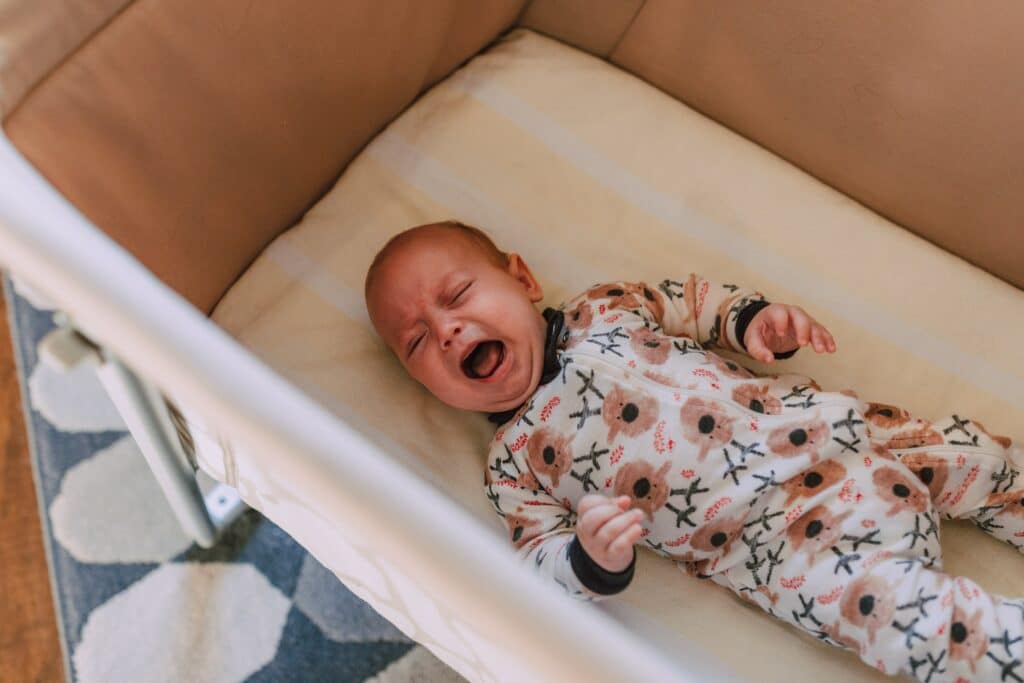
Does a dry diaper in the morning mean my baby is dehydrated?
Depending on your baby’s age and their eating habits, when you see a dry diaper in the morning, you might worry about dehydration. This is a genuine concern and if you think your child isn’t getting enough fluids, it’s important to ensure they’re not dehydrated.
Every parent is susceptible to second-guessing themself and trying not to overreact, but you should never be afraid to call your doctor if you think there is a problem with your child. There is no ‘inconvenience’ in the world that is bigger than your baby’s health so you shouldn’t ever feel guilty about calling.
My wife and I called our pediatrician all the time with the girls just to get peace of mind that something was normal or that we were doing the right thing.
If you are looking for possible signs of dehydration, follow the advice of the Cleveland Clinic and call your doctor anytime you see the following:
- No tears when baby cries
- Dry tongue and lips
- Fewer than six wet diapers in a day for infants and no wet diapers in an eight-hour period for toddlers
- Sunken eyes
- Sunken soft spot in the middle of the infant’s head
- Deep, rapid breathing
- Cool hands and feet with blotchy skin
- Dry and wrinkled skin that doesn’t snap back when pinched
- Dark-colored urine
- Lethargy or difficulty arousing your child
Don’t forget that dehydration can frequently follow periods of diarrhea or vomiting caused by an illness.
When in doubt, always call!
If dehydration isn’t a concern, then remember there’s likely another reason why your baby’s diaper is dry in the morning.
Peace of mind when baby’s diaper is dry in the morning
Hopefully at this point, you’ve determined there really isn’t a cause for concern when it comes to your baby’s dry overnight diaper. Remember that things can change quickly with babies, so pay attention to any changes and don’t hesitate to call your pediatrician with any questions or concerns.

